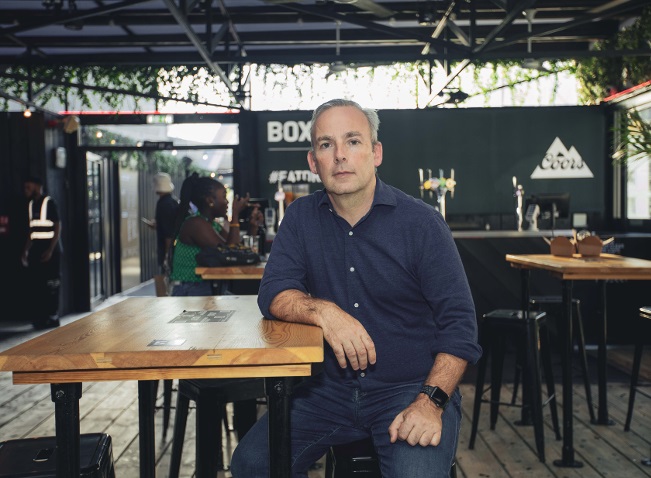The Subplot
The Subplot | All Trussed up, tricky sites, life sciences
THIS WEEK
- All Trussed up: forget levelling up, think “a rising tide lifts all boats”.
- Elevator pitch: your weekly rundown of who and what is going up, and who is heading the other way

ALL TRUSSED UP
Levelling up flattens out, but does it matter?
‘Levelling up’ could go the same way as the Northern Powerhouse under new Prime Minister Liz Truss. Would it matter if it did?
It is Thursday morning, less than 48 hours after Liz Truss became Prime Minister. It is literally too soon to say what approach she will take to regional development, or the property business, or both. A largely vacuous Conservative leadership campaign left us very few clues. But we don’t have to wait for the big announcements to get a clear picture of what’s going on. Here’s Subplot’s rundown of what to look for in today’s news.
Jake Berry
The Rossendale MP and champion of the Northern Powerhouse morphed into a champion of levelling up as one slogan replaced another. If Berry had been given a powerful economic job in government then the slogan stood a chance of transitioning some form of reality. Things looked hopeful – a cabinet-level minister for the North was mentioned early during the Truss campaign – and Berry would have been perfect. But no, he’s party chairman – as far from actual policymaking as possible. This is not a good sign.
Cabinet friends
If Penny Mordaunt or Kemi Badenoch got the levelling up portfolio, then that would mean serious action. After all, they have every personal motive to make a splash outside the Tory heartlands. Instead the winner was Simon Clarke, an MP from Middlesborough, and a bright and diligent person, but not in the same political league as Berry, Mordaunt or Badenoch.
Sink or swim
So has levelling up been pushed under a train – unfortunately not a high speed one to Leeds? Truss campaign lieutenant Iain Duncan Smith said a few days ago that ‘levelling up’ was as dead as the Northern Powerhouse. Maybe he’s right but the bigger picture could be more complicated. The evidence – a single Truss comment about not seeing the economy so much through the lens of redistribution – suggests the new PM meditates a change of direction. We could see policy that prefers to grow the economy in total, hoping that a rising tide lifts all boats, rather than an emphasis on special policies for disadvantaged areas. If that’s right, it’s levelling up RIP.
Heads I win
Should you be dismayed? Levelling up was always more slogan than reality, so maybe not much of a loss. A rising-tide-lifts-all-boats policy will please the big investors – in property and anything else – who want to build in the most successful areas (London, South East, Oxford-Cambridge arc, and Manchester). It is a massive green light to them, reminiscent of the Blair years when the government was famously very relaxed about the rich.
That old chestnut
The difficulty is that the Blair-era theory relied on another theory – one that is widely regarded as moderately rubbish. This was the idea that wealth trickles down, which it does to an extent, the trouble is that hardly any of it trickles down to the people who really need it, and they have to wait longest for whatever dribbles their way. Thirty years of research makes this point in technicolour. Any return to trickle-down economics scores very low marks.
Grab bag
Everybody else will have to listen for fainter signals. For instance, Truss has spoken of more high-rise buildings – so more planning law changes? – and new investment zones. Beware of “zones” – politicians love them, but the evidence that they do anything significant, except distort investment away from un-zoned areas, is limited. Even so, it shows regional policy isn’t quite dead in Trussland. Levelling up breathes again?
Chuffing nonsense
There was not much said on rail and public transport during the leadership campaign, although there was a press statement saying Truss will “work with local leaders to put together a fully costed plan to deliver the project, as we promised in our 2019 manifesto”. The new PM made an interesting campaign comment on Treasury investment hinting at new green book rules on how public money is spent, which could open the door to more transport investment. This was also a Johnson commitment, and it is easier said than done. But one to watch.
And now the flipside
But consider this. Great cities – and great regions – make their own economic weather. Yes, of course, actively hostile or heedless policies from central government do not make life easier. But local skills, resources and leadership make a difference. For proof, study the fortunes of some of our big cities – Manchester and Salford, for instance – blighted in the 1980s but now making waves.
Local authorities have plenty of policy levers at their disposal, if they have the skill and wisdom to use them. Metro mayors add a bit of political spice, which is not unhelpful. But the most powerful tool of all is a determined coalition of local politicians and business. The property industry knows this well. Get that relationship right, and helpful decisions find a way to get taken. Get it wrong and you’ll have to leave it to Liz.
 ELEVATOR PITCH
ELEVATOR PITCH
Going up, or going down? This week’s movers
Life sciences property is growing like the fuzzy on a petri dish, so that’s pinging the up button. Controlling ever-growing hopes for some sites is hard. Sometimes going down the value chain is the only answer.
 Life sciences real estate
Life sciences real estate
A new 800,000 sq ft life sciences scheme has been launched in London. Canary Wharf Group and Kadans Science Partner have appointed Cushman & Wakefield and JLL as leasing agents for the commercial laboratory building they intend to develop as the focus of a world-leading health and life sciences cluster at Canary Wharf. It will be 23-storeys tall and by completion in 2026 it will be the largest wet lab life sciences building in Europe. Kadans is Dutch, and a big noise in the life sciences sector.
This matters because projects like the CWG/Kadans tie-up are the competition for the North West’s life sciences cluster. Bruntwood SciTech has just announced it is pushing on with six-storey, 200,000 sq ft plans for Alderley Park, half of it lab space. It’s a big commitment, but the region may need even bigger commitments if the life sciences offer is to deliver all it could. It may also take more international involvement from groups like Kadans that have so far restricted themselves to the London-Cambridge corridor.
 A dangerous syndrome
A dangerous syndrome
There’s a familiar syndrome in the property business. Let’s call it ‘Too Good To Waste Syndrome’. TGTW typically involves a site everyone agrees is FANTASTIC but is, alas, challenging to develop. It changes hands fairly often, things tend not to thrive there (bad luck? Sometimes yes), and has many and varied planning applications.
This chopping and changing isn’t just giddiness, its hard-wired into the site because maximising value is essential if the owner is to overcome the “alas, challenging to develop” aspects of their treasured asset. So the owners try to adapt to changing hierarchies of value, picking whatever is currently hottest – maybe retail and leisure, then residential, then offices, then back to resi. And because swapping horses takes time it is almost always the case that by the time they switch from resi back to offices (again), or whatever, the economy has moved on, and what looked like a safe bet is now more doubtful. A pause follows. Then another rethink, then another sale or a new planning application.
TGTW can eat entire careers, and lots of money as the search for the right value at the right time goes on. The idea of compromise – going for a lower-value but deliverable use – is always deferred. Only a handful of victim sites ever escape – Liverpool’s Chavasse Park was one (swallowed into the Grosvenor Liverpool One scheme). Fingers crossed that Trilogy’s Great Northern Warehouse – now embarked on another rethink, this time substituting offices for resi in the 370,000 sq ft historic warehouse building – can escape the vortex too.
One can expect to hear more about Trilogy’s Great Northern Warehouse plans at Place North West’s Future of Retail event on 15 September. The developer’s Laurence Jones is speaking, alongside representatives from Grosvenor, Allied London, and Metis Real Estate.
Get in touch with David Thame: david.thame@placenorthwest.co.uk
The Subplot is brought to you in association with Oppidan Life.






Not a chance Truss knows what she’s doing or how to do it. Everything she said in the leadership ‘contest’ she wobbled on as soon as someone pointed out how stupid it was. And her first big announcement does what you’d expect of this government: loads the cost of her policy onto those least able to afford it, whilst allowing big business to cream the profit. Levelling Up was always insultingly meaningless. Nothing will change in that regard.
By Unlevelled for balance
Liz Truss absolutely committed several times to delivering Northen Powerhouse Rail in full, which she must be held to. She was also pressed to kill HS2 and said whilst she had some sympathy “in her heart” it had gone too far, but the delivery of it should be looked at again to minimise costs and maximise mitigation.
By Levelling Up